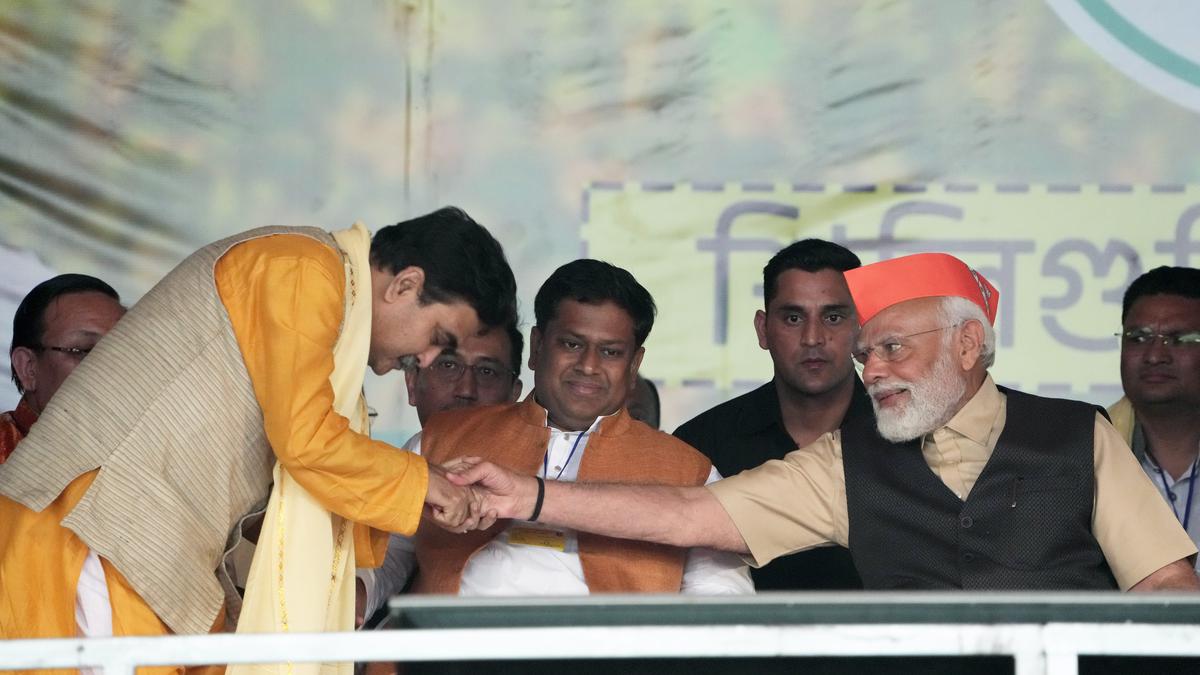| Topic: GS2 – Governance – Government Policies, GS3 – Environment and Ecology
The topic is crucial for UPSC as it addresses environmental challenges, government policies, and sustainable development, key aspects of UPSC syllabus. |
| Context |
| ● The article discusses India’s water crisis, emphasizing the importance of conservation measures, government initiatives, and rainwater harvesting for achieving water security and peace. |
Introduction to World Water Day:
- World Water Day, observed on March 22 annually since 1993, is a global initiative supported by the United Nations to raise awareness about the significance of freshwater.
- This year’s theme, “Water for Peace,” underscores the critical role water plays in promoting peace and stability globally.
Water Crisis in India:
- India faces a multifaceted water crisis stemming from rapid urbanization, industrialization, unsustainable agricultural practices, and climate change.
- Factors such as erratic rainfall patterns, water overuse, pollution, and inadequate infrastructure exacerbate the problem.
- According to the World Resources Institute, 17 countries, including India, are under extreme water stress, which could lead to conflicts and unrest.
Challenges and Statistics:
- India’s water availability is already low and expected to decrease further by 2025 and 2050.
- Groundwater depletion is rampant across states like Punjab, Rajasthan, Delhi, and Haryana, reaching alarming ratios.
- Many rivers and streams have intermittent flows or have dried up entirely, impacting ecosystems and water security.
Current Initiatives and Government Programs:
- The government has launched initiatives like the Pradhan Mantri Krishi Sinchayee Yojana (PMKSY) and Mission Amrit Sarovar to address water conservation.
- Emphasis is placed on rainwater harvesting, rejuvenation of water bodies, watershed development, and afforestation.
- However, there’s a need for a comprehensive protocol for the revival of ponds and water bodies.
Importance of Rainwater Harvesting:
- Rainwater harvesting is crucial for augmenting water availability and resilience against scarcity and drought.
- Large-scale rainwater harvesting structures, conjunctive use with groundwater, and safe wastewater reuse are vital for sustainable water management.
Additional Interventions for Water Security:
- Monitoring groundwater levels, reclaiming water quality, and implementing water pricing mechanisms are essential steps.
- A circular water economy, efficient irrigation techniques, and integrated water resource management are necessary for sustainable usage.
- Community awareness campaigns, adoption of low-water requirement crops, and optimal crop planning are crucial for water conservation.
Conclusion:
- Strengthening World Water Day 2024’s theme requires comprehensive strategies to address India’s water crisis.
- Implementing rainwater harvesting, government initiatives, and additional interventions can enhance water security and contribute to a more peaceful world.
- By focusing on these initiatives, India can mitigate its water crisis and move towards a more sustainable and peaceful future.
| Water crisis in India: |
| Reasons:
● Rapid population growth increasing demand for water. ● Urbanization and industrialization leading to water pollution and depletion. ● Poor water management practices and inefficient use of resources. ● Climate change impacting rainfall patterns and water availability. ● Over-extraction of groundwater for agriculture and domestic use. Challenges to Combat: ● Inadequate infrastructure for water storage, distribution, and treatment. ● Unequal distribution of water resources among different regions. ● Lack of awareness about water conservation and sustainable practices. ● Political and bureaucratic hurdles in implementing effective policies. ● Conflicts over water sharing between states exacerbating the crisis. Way Forward: ● Implementing stringent regulations to control water pollution and ensure sustainable use. ● Investing in water conservation technologies and infrastructure development. ● Promoting community-based water management initiatives. ● Encouraging rainwater harvesting and groundwater recharge techniques. ● Enhancing public awareness through education and outreach programs. ● Facilitating inter-state cooperation and dispute resolution mechanisms. ● Integrating water management into urban planning and development policies. ● Fostering research and innovation for efficient water use and management. Addressing the water crisis in India requires a comprehensive approach involving government intervention, community participation, technological innovation, and sustainable practices across various sectors. |





.jpg)





